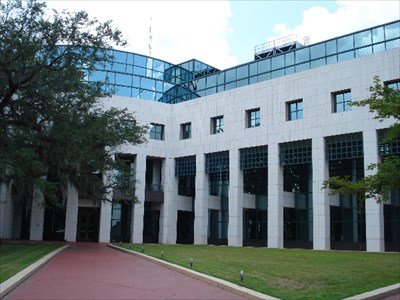After receiving a Leon County staff report on Leon County’s Adult Civil Citation (ACC) program and recent marijuana reform efforts at its September 17th meeting, the Leon County Commission voted 4-3 to create a draft civil citation ordinance for marijuana possession.
County Commissioners Bill Proctor, Nick Maddox, Kristin Dozier, and Rick Minor voted to direct staff to create a draft ordinance and to gather more information on the implications.
County Commissioner Bryan Desolge, Jimbo Jackson, and Mary Ann Lindley voted no on the motion.
In the report, staff stated that the Board may want to consider drafting a local ordinance to that provides for civil penalties instead of criminal charges for marijuana possession. Currently, in the State of Florida, a misdemeanor marijuana possession case involves 20 grams or less. Penalties for a misdemeanor are a maximum of one year in jail and a $1000 fine.
During the discussion addressing the report, Commissioner Bryan Desloge, citing a media report indicating the County may decriminalize marijuana possession, noted that the Board does not have the authority to legalize marijuana. His comments were supported by County Attorney Herb Thiele.
County Commissioner Bill Proctor made a motion to accept the status report and direct staff to prepare an ordinance for the Board’s consideration to provide civil penalties for misdemeanor marijuana possession offenses.
County Commissioner Nick Maddox seconded the motion.
County Commissioner Kristin Dozier discussed the double standard that can occur based on the varying situations related to a marijuana possession arrest.
County Commissioner Mary Ann Lindley was concerned that a ordinance would not be meaningful since it would rely on the cooperation of approximately 26 local law enforcement officials.
County Commissioner Rick Minor said he was not opposed to shifting to civil citations, but is concerned about increased use by minors. He said he would support further discussion on the issue.
At that point, County Commissioner Dozier made an alternative motion that would create a draft ordinance and gather more information from local law enforcement officials. The motion carried 4-3.
The proposed ordinance, like ordinances adopted by other Florida communities, would decriminalize misdemeanor marijuana possession through “civil penalties instead of criminal charges.” Alternatives to criminal charges could be fines, community service, and completion of the Adult Civil Citation program requirements.
Notably, the State Attorney expressed opposition to creating the ordinance because it would not override existing federal or state legislation.
“Because misdemeanor marijuana possession remains a criminal offense under both federal and state laws, any local ordinance in Florida intending to decriminalize marijuana would be null and void and would not preclude prosecution,” as stated in the report.
The State Attorney for the 2nd Judicial Circuit administers the Adult Civil Citation (ACC) program. The ACC program, according to the report, “is a pre-arrest criminal justice diversion program that utilizes cost-effective alternatives to the formal criminal justice process and has been recognized as a model for other similar programs throughout the state.”
In addition to the ACC program, the State Attorney administers a post-arrest Misdemeanor Diversion Program. Both programs could potentially allow diversions before or after arrest for misdemeanor marijuana possession cases.
“These programs are designed to divert misdemeanor offenders throughout the 2nd Judicial Circuit from the criminal justice system by providing eligible offenders with the opportunity to avoid criminal prosecution for certain low-level offenses, including misdemeanor marijuana possession, as long as the offender participates in and complies with the requirements of the program and avoids further criminal activity,” as noted in the report.
Even if an ordinance is passed, offenders could still receive criminal charges for misdemeanor marijuana possession. Ultimately, true decriminalization of misdemeanor marijuana possession cannot occur without changes in federal or state legislation.


So Kristin, what do you mean by “the double standard that can occur based on the varying situations related to a marijuana possession arrest.”
Do you mean if an LEO finds one bag of weed with two people, the first one who says “that isn’t mine” gets a pass?
Maybe the double standard is that it’s now okay to buy from trulieve, but if you don’t have the $ to buy the prescription it’s a criminal charge…..that is nonsensical. And we end up paying for it.
Yea, promote more drug use, that’s the answer. Drug rehab equal to or greater than current sentences instead of convictions and criminal records for possession might help. We need LESS drug use, not MORE!
We need to concern ourselves with more pressing drug use…meth and opioids. We’re wasting money prosecuting low-level weed users. None of them have money for a lawyer, so we end up paying for a public defender, jail, and they’ll never get hired with it on their records + even more public assistance. Why is this so hard to understand? You do realize Trulieve is up the street selling the exact same product legally??? It’s considered medicine if you have enough money to buy a prescription, but if you don’t have the hundreds of dollars for the card, now it’s a drug?? Makes no sense.